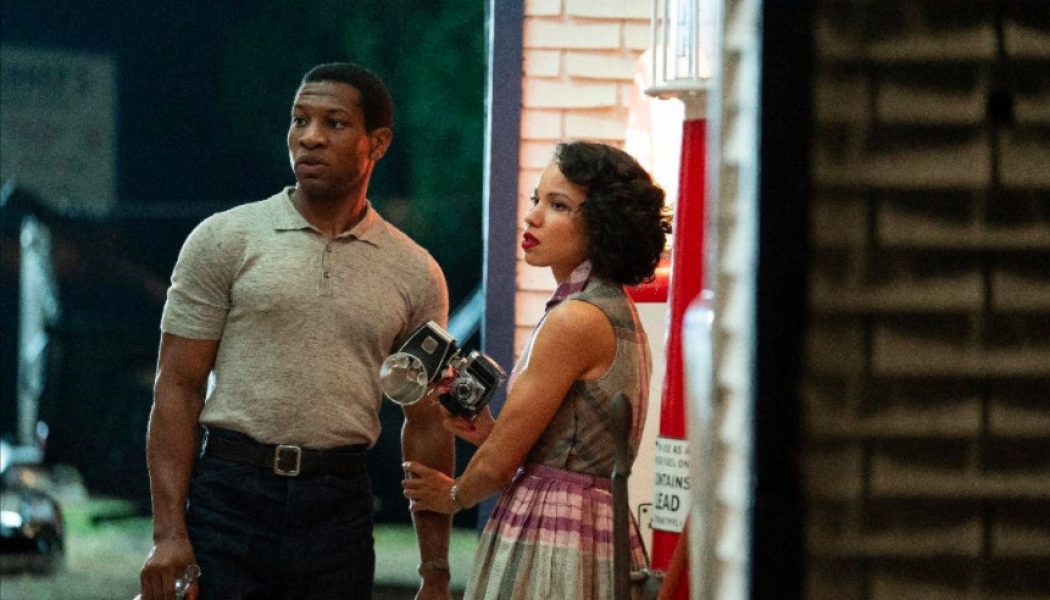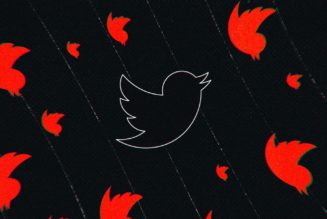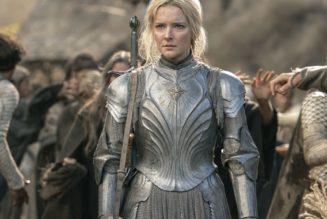Lovecraft Country starts with a dream. A Black man fights on a battlefield, but we can’t see who he and his fellows are clashing with. The reveal is spectacular: aliens, monsters, and a princess of Mars. The soldier stares down a menagerie of impossible beings from the works of Wells and Burroughs, white writers who only ever thought to send white men off on adventures to face these creatures. In this dream though, the Black soldier is Atticus Freeman, confronting them with some help from a hero of his own: Jackie Robinson. Then he wakes up — back to the reality of the 1950s where white men are entitled to the world, the paperback on his chest where white authors lay claim to fantasy, and the racism that barely lets him exist in either.
Based on Matt Ruff’s novel of the same name, Lovecraft Country follows Atticus (Jonathan Majors) as he goes on a journey to find his father Montrose (Michael K. Williams) who has disappeared somewhere in Massachusetts. On his travels, he’s joined by his uncle George (Courtney B. Vance) and childhood friend Letitia (Jurnee Smollett), and together, they brave the earthly horrors of racism alongside the otherworldly ones of things unknown.
But that’s only the first two episodes. Horror has a way of following you, and Freeman’s family soon becomes a magnet for the strange and terrifying, their Chicago neighborhood a place where ghosts and monsters hide in plain sight. Each episode of Lovecraft Country becomes a fable where the moral is the same: racism is a monster, and perhaps it’s time the racists fear something, too.
There’s also the matter of the man the show takes its name from.
Like a lot of American racists, Howard Phillips Lovecraft holds an enormous and disproportionate level of influence in his particular field, horror fiction. Similar to D.W. Griffith, he has a venerated place in the canon because of his groundbreaking work, despite the clear and apparent repulsiveness of that work. This is not really up for debate; you can see for yourself that Griffith’s The Birth of a Nation is Ku Klux Klan propaganda, and much of Lovecraft’s writing is openly racist and shocking even for his time.
But alas, many have said, he is so good at what he did, and thus is inextricable from horror because he’s influenced most of your favorite writers. If you dabble in any kind of horror, there’s a little bit of Lovecraft rattling in your brain, and decades of fiction inspired by it likely put it there. And so there has been a rot at the heart of this mode of fiction — Cosmic horror, stories about what happens to the minds of characters who discover that humanity is insignificant and there are things older and far more powerful than we could comprehend lurking outside of our comprehension. It’s horror conjured by privilege, the fright that comes from imagining that you are not the most important thing in the universe — the arrogance of Lovecraft’s bigotry codified into genre fiction.
Lovecraft Country is a story about taking all that back, starting with the man’s name, which has become synonymous with the kind of horror he produced.
This is what gives Lovecraft Country its most disconcerting quality — its tone. Its episodic structure makes each episode a different kind of story where Atticus and his family are the heroes, the adventurers beset by unseen evil imagined by authors who thought of them as undeserving of their own story. Because while the show is named after Lovecraft, the racism is not limited to him: it is a feature of the genre. The terror of cosmic horror was canonized by men who did not have much to dread about their own existence.
:no_upscale()/cdn.vox-cdn.com/uploads/chorus_asset/file/21769397/Screen_Shot_2020_08_19_at_10.14.53_AM.png)
And so Lovecraft Country leaps from genre stepping stone to stepping stone, never really settling in one place long enough to dive deep into the implications of every premise, to let the viewer sink into any particular feeling of familiarity. It can be bracing if you are unprepared for it and dissonant if you are expecting the kind of “prestige” presentation befitting the HBO brand — itself often a signifier of whiteness and privilege.
Needle drops are often baffling and on the nose, pulling from Cardi B and Nina Simone. Characterization is haphazard, and dramatic turns take place out of left field, as if entire scenes are missing. On some level, it is deeply frustrating television, especially when it proves itself capable of episodes like “Holy Ghost,” a taut and effective horror story about a haunted mansion full of ghosts who want revenge on the racist who killed them. But Lovecraft Country’s aims are straightforward, and maybe they’re enough — asserting that horror, even the pulpy kind often dismissed by the cultured, is driven by fear of the Other, and that we have not thought enough about who the Other that has been feared all this time is.
A funny thing about Lovecraft: there are very few direct adaptations of his work, none in mainstream film or television. Cite him all you want; his grip on the pop-cultural consciousness is tenuous at best. In making Lovecraft Country for HBO, showrunner Misha Green and her collaborators have arguably made the most popular work with the man’s name on it, affixing it to a story that would abhor him. Like an Old God, Lovecraft Country has stirred and worked its way from Ruff’s novel to premium cable and posters and advertisements. It has gazed upon its namesake and found him not wanting, but insignificant. The fear his writing spoke of, now turned to Lovecraft himself.










